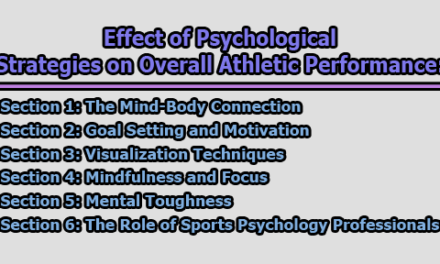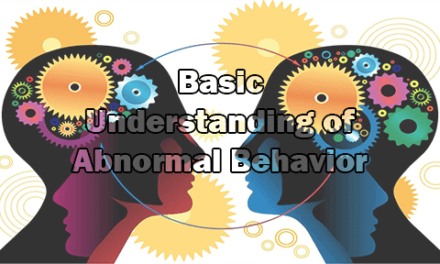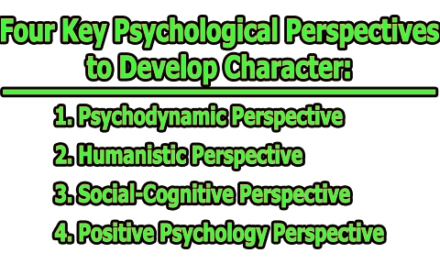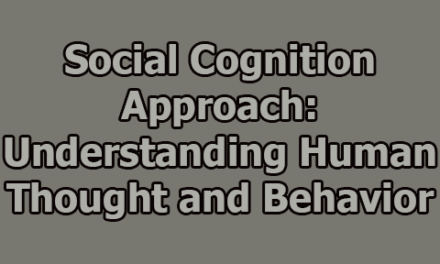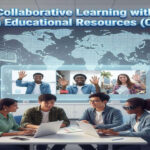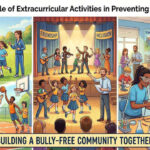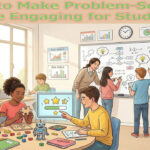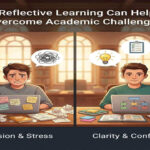An Overview of Self-Reliance:
Self-reliance is a fundamental concept that has transcended cultural, philosophical, and historical boundaries. It is a quality that individuals across various societies aspire to cultivate, recognizing its importance in personal development and societal progress. In this article, we will explore an overview of self-reliance, delving into its meaning, examples, importance, development strategies, and application across different age groups.
Understanding the Meaning of Self-Reliance:
Merriam Webster defines self-reliance as ‘reliance on one’s own efforts and abilities.’ However, this simplistic definition falls short of capturing the comprehensive essence of the concept. Psychological discussions link self-reliance to the reliance on internal resources to provide life with coherence and fulfillment. It is a nuanced approach to individualism that emphasizes autonomy and internal strength.
Emerson’s Perspective “Self-Reliance” stands as a cornerstone in the exploration of individualism and the detrimental impact of societal expectations on personal growth. Emerson advocates for self-trust, self-reliance, and individualism as means to escape societal conformity. His work emphasizes thinking independently, embracing individuality, and bravely pursuing one’s goals as crucial aspects of self-reliance.
Examples of Self-Reliance: Self-reliance is exemplified through various actions and attitudes that demonstrate an individual’s ability to independently navigate challenges, make decisions, and pursue personal goals. Here are illustrative examples of self-reliance:
- Thinking Independently: In academic settings, a student who critically evaluates information, forms independent opinions, and contributes unique perspectives to discussions showcases self-reliance in intellectual endeavors. This individual trusts their ability to analyze information rather than conforming to popular viewpoints.
- Embracing Individuality: Consider Bella, a young woman passionate about poetry in a family of engineers. Despite familial expectations, Bella pursues her love for poetry, attending workshops, and submitting her work for publication. Her choice to follow her passion showcases the courage to embrace individuality and resist external pressures.
- Striving Towards Goals: Alex, an aspiring entrepreneur, decides to start a small business despite potential challenges. With determination and a clear vision, Alex takes steps to research, plan, and launch the venture. This commitment to personal goals, even in the face of uncertainty, reflects a strong sense of self-reliance.
- Financial Independence: Emily, a recent college graduate, actively manages her finances, creates a budget, and invests wisely. By making informed financial decisions and avoiding reliance on external support, Emily demonstrates self-sufficiency in managing her economic well-being.
- Navigating Adversity: James faces a professional setback but chooses not to dwell on the circumstances. Instead, he assesses the situation, identifies alternative paths, and takes proactive steps to rebound. His resilience and ability to navigate adversity independently highlight a strong sense of self-reliance.
- Learning New Skills: Sarah decides to learn a new language without formal instruction. Leveraging online resources, books, and language exchange programs, she becomes proficient over time. Sarah’s initiative to acquire a skill independently demonstrates her self-reliance in the pursuit of personal development.
- Solo Travel and Exploration: Mark, an avid traveler, embarks on a solo backpacking journey through unfamiliar territories. Relying on his navigation skills, adaptability, and decision-making abilities, he successfully navigates the challenges of solo travel, showcasing self-reliance in diverse and dynamic environments.
- Starting a Personal Project: Emma, passionate about environmental conservation, initiates a community garden project. Taking responsibility for planning, organizing volunteers, and sustaining the project, Emma’s commitment reflects self-reliance in implementing personal initiatives.
- Entrepreneurial Ventures: Tom, with a vision for sustainable products, establishes a small eco-friendly business. From conceptualization to execution, Tom independently navigates the entrepreneurial journey, demonstrating self-reliance in pursuing innovative and socially responsible ventures.
- Crisis Management: During a crisis, Maya remains composed and takes decisive actions without relying solely on external assistance. Her ability to assess the situation, formulate a response, and adapt to changing circumstances illustrates a high degree of self-reliance in crisis management.
Importance of Self-Reliance:
Self-reliance is a concept that extends beyond individual autonomy; it plays a crucial role in personal development, psychological well-being, and societal progress. Some of the essential importance of self-reliance are briefly given below:
- Personal Development and Self-Reliance:
- Autonomy and Intrinsic Motivation: Research in developmental psychology emphasizes the role of autonomy in fostering intrinsic motivation and personal growth (Deci & Ryan, 1985). Autonomy, a key component of self-reliance, allows individuals to act in alignment with their values and interests, promoting a sense of authenticity and fulfillment (Ryan & Deci, 2017). Cultivating self-reliance empowers individuals to make decisions based on their own judgments, contributing to a more resilient and self-aware sense of self.
- Resilience and Coping Skills: Self-reliant individuals often exhibit higher levels of resilience and coping skills when faced with challenges. Studies suggest that self-reliance contributes to adaptive coping strategies, enabling individuals to navigate adversity more effectively (Wagnild & Young, 1993). By developing a sense of self-efficacy and the belief in one’s ability to overcome obstacles, individuals can enhance their psychological well-being and cope with life’s uncertainties.
- Resilience and Self-Reliance:
- Emotional Regulation and Stress Management: The link between self-reliance and emotional regulation is a critical aspect of resilience. Research indicates that individuals with a higher sense of self-reliance tend to demonstrate better emotional regulation and stress management abilities (Ciarrochi et al., 2016). The capacity to independently manage emotions contributes to overall mental well-being and helps individuals navigate both personal and professional challenges.
- Adaptability and Flexibility: Self-reliance fosters adaptability and flexibility in the face of changing circumstances. Individuals who possess a strong sense of self-reliance are more likely to adapt to new situations, problem-solve effectively, and embrace change as an opportunity for growth (Luthans & Youssef-Morgan, 2017). This adaptability is crucial in a dynamic and ever-evolving world, where individuals must navigate complex and unpredictable environments.
- Societal Progress Through Self-Reliance:
- Innovation and Entrepreneurship: On a societal level, self-reliance contributes to innovation and entrepreneurship. Research in organizational psychology suggests that fostering a culture of self-reliance within a community or workplace encourages creative thinking and entrepreneurial initiatives (Kuratko, 2009). Individuals who are self-reliant are more likely to take initiative, pursue novel ideas, and contribute to the development of innovative solutions.
- Community Empowerment: Communities composed of self-reliant individuals are more likely to experience empowerment and collective progress. Research on community psychology emphasizes the positive impact of self-reliance on community development (Chavis & Wandersman, 1990). When individuals within a community feel empowered to take initiative and contribute to shared goals, the overall resilience and well-being of the community are enhanced.
How to Develop Self-Reliance:
Developing self-reliance is a dynamic process that involves intentional efforts and strategies.
1. Building Autonomy in Children:
1.1 Encouraging Intrinsic Motivation: Encouraging intrinsic motivation is a foundational step in fostering autonomy and self-reliance in children. Intrinsic motivation refers to engaging in activities for the inherent satisfaction they provide, rather than for external rewards (Deci & Ryan, 1985). Parents and educators play a crucial role in cultivating intrinsic motivation by creating environments that support children’s natural curiosity and interests.
- Provide Choice: Offering children opportunities to make choices empowers them and promotes a sense of control over their actions. This could involve allowing them to choose their activities, clothes, or snacks within appropriate limits. Research suggests that children who experience autonomy through choice-making are more likely to develop self-reliance (Grolnick & Ryan, 1989).
- Link Activities to Interests: Tailoring activities to align with children’s interests taps into their intrinsic motivation. Whether it’s incorporating a child’s favorite theme into learning or choosing books that align with their preferences, connecting activities to their interests fosters a sense of engagement and self-directed learning.
- Encourage Curiosity: Nurturing a child’s natural curiosity fosters a love for learning and exploration. Encourage them to ask questions, explore their surroundings, and seek answers independently. This helps build a foundation for lifelong learning and a proactive approach to seeking knowledge.
- Acknowledge Effort and Inquisitiveness: Recognizing and praising a child’s effort and inquisitiveness, rather than solely focusing on outcomes, reinforces the importance of the learning process. This approach instills a mindset that values the journey of exploration and discovery, contributing to the development of intrinsic motivation (Dweck, 2006).
1.2 Providing Choices and Autonomy Support: Empowering children with choices within a supportive framework is a key strategy in building autonomy and self-reliance.
- Gradual Increase in Independence: As children grow, gradually increasing the complexity and significance of the choices they make allows for a natural progression toward autonomy. For example, younger children may choose between two snack options, while older children can be involved in decisions related to their extracurricular activities.
- Offering Guidance, Not Imposing Control: Providing guidance while allowing children to make decisions helps strike a balance between autonomy and support. This approach helps children develop decision-making skills and a sense of responsibility without feeling overwhelmed.
- Encouraging Problem-Solving: Actively involving children in problem-solving processes contributes to their self-reliance. When faced with challenges or conflicts, encourage them to brainstorm potential solutions, evaluate consequences, and make decisions. This not only hones their critical thinking skills but also reinforces the idea that they have the capacity to navigate challenges independently.
- Creating a Supportive Environment: Fostering an environment where children feel safe to express their opinions, make choices, and learn from mistakes is crucial. A supportive atmosphere encourages them to take risks, learn from experiences, and gradually build confidence in their decision-making abilities (Grolnick & Ryan, 1989).
2. Cultivating Self-Efficacy in Adolescents:
2.1 Setting Realistic Goals and Expectations: Cultivating self-efficacy, a critical component of self-reliance, involves helping adolescents develop confidence in their abilities and a belief in their capacity to achieve goals (Bandura, 1997). Parents, educators, and mentors can play a pivotal role in this process by employing strategies that contribute to the establishment of realistic goals and expectations.
- Collaborative Goal Setting: Engaging adolescents in collaborative goal-setting processes fosters a sense of ownership and commitment. Discussing short-term and long-term goals allows adolescents to articulate their aspirations and provides a framework for working towards them. This collaborative approach also helps align goals with personal values and interests.
- Breaking Goals into Manageable Steps: Breaking larger goals into smaller, more manageable steps makes the path to achievement less daunting. This step-by-step approach allows adolescents to experience success at each stage, reinforcing their belief in their ability to overcome challenges and accomplish tasks.
- Highlighting Past Achievements: Reminding adolescents of past achievements, no matter how small, reinforces their competence and self-efficacy. Reflecting on instances where they successfully navigated challenges provides tangible evidence of their capabilities, instilling confidence in their ability to tackle future endeavors.
- Encouraging Persistence in the Face of Setbacks: Acknowledging that setbacks are a natural part of the goal-setting process and encouraging perseverance helps build resilience. Research on self-efficacy suggests that individuals who view challenges as opportunities to learn and grow are more likely to maintain a proactive and self-reliant mindset (Bandura, 1997).
2.2 Encouraging Risk-Taking and Learning from Failure: Fostering a healthy attitude towards risk and failure is essential in developing self-reliance, as it encourages adolescents to view challenges as learning opportunities rather than insurmountable obstacles (Dweck, 2006).
- Promoting a Growth Mindset: Encouraging a growth mindset, the belief that intelligence and abilities can be developed through effort and learning, creates a foundation for resilience and self-reliance (Dweck, 2006). Emphasizing the importance of effort and the learning process over innate abilities fosters a proactive approach to challenges.
- De-Stigmatizing Failure: Normalizing the concept of failure and destigmatizing mistakes create an environment where adolescents feel safe taking risks. When they understand that setbacks are part of the learning journey, adolescents are more likely to approach challenges with a sense of curiosity and determination.
- Facilitating Reflective Practices: Encouraging adolescents to reflect on their experiences, both successes and failures, promotes self-awareness and a deeper understanding of their abilities. Reflective practices help them identify areas for growth, refine strategies, and build a repertoire of effective problem-solving skills.
- Providing Constructive Feedback: Offering constructive feedback that focuses on effort, improvement, and specific strategies enhances self-efficacy (Hattie & Timperley, 2007). Positive reinforcement for perseverance and strategic thinking reinforces the idea that learning and progress are achievable through individual initiative.
3. Self-Reliance Skills for Preschoolers:
3.1 Independence and Decision-Making: Fostering self-reliance in preschoolers involves providing opportunities for independence and decision-making within a supportive framework (Gestsdottir et al., 2014). These foundational skills contribute to the development of autonomy and a sense of personal agency in young children.
- Encouraging Daily Tasks: Introducing age-appropriate daily tasks such as dressing themselves, cleaning up toys, or preparing simple snacks allows preschoolers to take on responsibilities independently. These tasks not only build practical life skills but also instill a sense of capability and self-reliance.
- Offering Choices: Providing choices empowers preschoolers to make decisions within predetermined limits. For example, letting them choose between two snack options or selecting a book for storytime allows them to exercise their decision-making abilities. This fosters a sense of autonomy and self-determination.
- Problem-Solving Through Play: Engaging preschoolers in play-based activities that involve problem-solving encourages them to think independently. Activities like building with blocks, solving puzzles, or engaging in imaginative play stimulate cognitive development and promote self-reliance.
- Celebrating Independence: Acknowledging and celebrating instances of independence reinforces the value of self-reliance. Offering praise and positive reinforcement when preschoolers successfully complete tasks independently boosts their confidence and encourages them to continue exploring their capabilities.
3.2 Emotional Regulation and Coping Strategies: Teaching emotional regulation is a crucial aspect of developing self-reliance in preschoolers. Emotional literacy and coping strategies lay the groundwork for handling challenges and navigating social interactions (Compas et al., 2017).
- Identifying Emotions: Helping preschoolers identify and label their emotions provides a foundation for emotional regulation. Using simple language to express feelings and discussing emotions in different contexts enhances their emotional vocabulary and understanding.
- Breathing and Relaxation Techniques: Introducing age-appropriate breathing exercises and relaxation techniques aids in teaching preschoolers how to manage their emotions. These techniques serve as coping mechanisms, empowering children to navigate moments of frustration or anxiety independently.
- Expressing Emotions Through Art: Artistic activities, such as drawing or coloring, offer a creative outlet for preschoolers to express their emotions. Engaging in art allows them to communicate feelings non-verbally and develops a healthy means of self-expression.
- Teaching Problem-Solving Skills: Encouraging preschoolers to think of solutions to minor conflicts or challenges promotes problem-solving skills. Guiding them through simple scenarios and asking open-ended questions stimulates critical thinking and empowers them to devise strategies for resolution.
4. Self-Reliance Activities for Youth:
4.1 Outdoor Adventure and Experiential Learning: Engaging youth in outdoor adventure and experiential learning activities offers a powerful avenue for developing self-reliance. Research in environmental psychology highlights the positive impact of nature-based experiences on personal growth, problem-solving, and resilience (Brymer et al., 2010).
- Team Building Through Adventure: Participating in activities such as rock climbing, ropes courses, or backpacking fosters teamwork and collaboration. These experiences require individuals to rely on their strengths and contribute to the group, promoting a sense of responsibility and self-reliance within a team context.
- Navigating Challenges: Outdoor adventures often present physical and mental challenges. Whether it’s navigating a trail, setting up a campsite, or overcoming obstacles, these activities provide opportunities for youth to problem-solve, make decisions, and build self-confidence in their abilities.
- Learning Survival Skills: Teaching youth basic survival skills, such as fire-building, navigation, or outdoor cooking, instills a sense of self-sufficiency. These skills not only enhance practical knowledge but also foster a mindset of independence and resourcefulness in unfamiliar environments.
- Reflective Practices in Nature: Encouraging reflective practices in natural settings, such as journaling or mindfulness exercises, provides youth with opportunities for self-discovery and self-awareness. Time spent in nature can be a catalyst for introspection, reinforcing the connection between personal growth and self-reliance.
4.2 Entrepreneurship Education: Integrating entrepreneurship education into youth programs serves as a valuable strategy for developing self-reliance. Research suggests that exposure to entrepreneurial skills contributes to the development of self-efficacy, proactive thinking, and problem-solving abilities (Fayolle et al., 2006).
- Business Simulation Games: Engaging youth in business simulation games allows them to experience decision-making, risk assessment, and financial management in a controlled environment. These activities provide practical insights into entrepreneurship and cultivate a proactive mindset.
- Hands-On Entrepreneurial Projects: Encouraging youth to initiate and execute entrepreneurial projects, whether small-scale ventures or community initiatives, promotes self-reliance. In the process, they learn to navigate challenges, make strategic decisions, and take responsibility for the outcomes of their projects.
- Mentorship and Networking: Providing opportunities for youth to connect with mentors and professionals in entrepreneurial fields exposes them to diverse perspectives and real-world experiences. Mentorship fosters a sense of guidance while empowering youth to take ownership of their entrepreneurial journey.
- Pitching and Presentation Skills: Developing effective communication skills, including pitching ideas and presenting projects, is integral to entrepreneurship. Youth can benefit from training in articulating their thoughts, promoting their initiatives, and gaining the confidence to assert their ideas independently.
The Self-Reliance Scale (SRS):
Measuring self-reliance is a complex task, but tools like the Self-Reliance Scale (SRS) provide a structured approach to assessing this multifaceted trait. The SRS, integrated into the Behavior Assessment System for Children (BASC-3), offers a quantitative method for evaluating an individual’s self-reliance. This scale encompasses various dimensions, including reliability, problem-solving ability, and independence.
- Components of the Self-Reliance Scale:
- Reliability: The SRS assesses an individual’s reliability in fulfilling commitments and responsibilities. Questions may inquire about the consistency and dependability of their actions, providing insights into their level of reliability in various contexts.
- Problem-Solving Ability: A crucial aspect of self-reliance is the capacity to navigate challenges effectively. The SRS evaluates problem-solving abilities, probing how individuals approach and overcome obstacles. This component offers a quantitative measure of their adaptive skills and resilience.
- Independence: Independence is a core element of self-reliance, and the SRS assesses the extent to which individuals can make decisions and act autonomously. Questions may explore their comfort with independence, self-directed decision-making, and the degree to which they rely on their own judgment.
- Self-Efficacy: Self-efficacy, or the belief in one’s ability to accomplish tasks and overcome challenges, is closely related to self-reliance. The SRS may include items that measure a person’s confidence in their capabilities across various domains.
- Applications of the Self-Reliance Scale:
- Psychological Assessment: Psychologists and clinicians utilize the SRS to gain insights into an individual’s psychological well-being. By assessing self-reliance, professionals can tailor interventions and support strategies to enhance an individual’s adaptive functioning and coping mechanisms.
- Educational Settings: In educational contexts, the SRS can be applied to understand students’ levels of self-reliance. This information is valuable for educators seeking to create environments that support the development of autonomy and independence in learning and decision-making.
- Organizational Development: Within organizational settings, the SRS can contribute to leadership development and team dynamics. Assessing self-reliance among team members can inform strategies for fostering a collaborative yet individually empowering work environment.
- Research on Human Behavior: Researchers interested in human behavior and individual differences may utilize the SRS as a quantitative tool to explore the correlates and predictors of self-reliance. This contributes to the broader understanding of personality traits and adaptive functioning.
Transcendentalism and Self-Reliance:
Ralph Waldo Emerson’s ideas on self-reliance are deeply intertwined with the philosophical movement known as Transcendentalism. Transcendentalism emerged in the 19th century as a response to societal conformity, industrialization, and the rationalist philosophy of the time.
- Core Tenets of Transcendentalism:
- Individualism: Transcendentalism places a strong emphasis on individualism, asserting the uniqueness and inherent goodness of each person. This aligns closely with the concept of self-reliance, where individuals are encouraged to trust their inner voice and resist conformity to societal norms.
- Intuition and Inner Guidance: Transcendentalists, including Emerson, believed in the power of intuition and inner guidance. They advocated for individuals to trust their instincts and inner wisdom, viewing these internal sources as more authentic than external authorities.
- Connection with Nature: Nature holds a central place in Transcendentalist philosophy, symbolizing a source of inspiration, spiritual insight, and a reflection of the divine. Connecting with nature allows individuals to tap into a deeper understanding of themselves and their place in the world.
- Emerson’s Influence on Self-Reliance:
- Emphasis on Nonconformity: Emerson’s essay “Self-Reliance” articulates the importance of nonconformity and the rejection of societal influences. Transcendentalism, as reflected in Emerson’s writings, encourages individuals to forge their own paths and resist the pressures of external expectations.
- Empowerment Through Individual Choice: Transcendentalism advocates for the transformative power of individual choice. By trusting one’s judgment and inner guidance, individuals can shape their destinies and contribute to the broader transformation of society.
- Path to Personal Freedom and Authenticity: Self-reliance, within the framework of Transcendentalism, becomes a path to personal freedom and authenticity. By relying on one’s inner resources and rejecting societal conformity, individuals can authentically express their beliefs, values, and unique contributions to the world.
In conclusion, self-reliance is a multifaceted and timeless concept that resonates across various domains of human experience. From its philosophical roots in transcendentalism to its practical applications in personal and societal development, understanding and cultivating self-reliance is essential for navigating the complexities of life. By exploring its meaning, examples, importance, development strategies, and connection to transcendentalism, this comprehensive overview aims to provide readers with a nuanced understanding of the significance of self-reliance in the journey of human existence.
Frequently Asked Questions (FAQs):
What is self-reliance?
Self-reliance is the ability and willingness to independently make decisions, solve problems, and meet one’s own needs without excessive dependence on others or external assistance. It involves trusting one’s capabilities, taking initiative, and navigating challenges autonomously.
Why is self-reliance important?
Self-reliance is crucial for personal development, resilience, and well-being. It empowers individuals to face challenges, make informed decisions, and pursue their goals with confidence. Cultivating self-reliance contributes to a sense of autonomy, adaptability, and a proactive mindset.
How can one develop self-reliance?
Developing self-reliance involves fostering intrinsic motivation, setting realistic goals, embracing failure as a learning opportunity, and gradually increasing independence. Building skills such as critical thinking, problem-solving, and decision-making also contributes to the development of self-reliance.
What are the characteristics of a self-reliant person?
A self-reliant person typically exhibits traits such as independence, resilience, initiative, adaptability, and a proactive approach to challenges. They trust their judgment, take responsibility for their actions, and demonstrate the ability to navigate various aspects of life autonomously.
How can self-reliance be measured?
Self-reliance can be measured using tools like the Self-Reliance Scale (SRS), which assesses components such as reliability, problem-solving ability, and independence. Psychological assessments, self-evaluation, and observations of an individual’s decision-making and problem-solving skills can also provide insights into their level of self-reliance.
Can self-reliance coexist with collaboration?
Yes, self-reliance can coexist with collaboration. A self-reliant individual is not necessarily isolated or unwilling to work with others. In fact, collaboration may enhance self-reliance by providing opportunities to share ideas, pool resources, and learn from diverse perspectives while still maintaining individual agency.
How does self-reliance contribute to personal growth?
Self-reliance contributes to personal growth by fostering a sense of empowerment, resilience, and continuous learning. Individuals who are self-reliant are more likely to take risks, learn from experiences, and adapt to new situations, leading to increased self-confidence and a broader range of skills.
Is self-reliance the same as independence?
While related, self-reliance and independence are not identical concepts. Independence refers to the ability to act and make decisions without external control, while self-reliance emphasizes the ability to meet one’s needs and challenges through personal initiative, resourcefulness, and trust in one’s capabilities.
Can self-reliance be taught?
Yes, self-reliance can be taught and developed over time. Educational programs, mentorship, and experiences that encourage autonomy, critical thinking, and decision-making contribute to the cultivation of self-reliance. Individuals can also proactively work on building self-reliance through self-reflection and intentional skill development.
How does self-reliance align with personal freedom?
Self-reliance aligns with personal freedom by emphasizing individual choice, autonomy, and the rejection of undue influence from external sources. Trusting one’s judgment and making decisions based on personal values contribute to a sense of freedom and authenticity in one’s actions and choices.
References:
- Brymer, E., Gray, T., & Cotton, W. (2010). The influence of extreme sports participation on self-esteem and self-efficacy. Proceedings of the 5th Outdoor Education Research Conference, Launceston, Australia.
- Chavis, D. M., & Wandersman, A. (1990). Sense of community in the urban environment: A catalyst for participation and community development. American Journal of Community Psychology, 18(1), 55-81.
- Ciarrochi, J., Parker, P., Kashdan, T. B., Heaven, P., & Barkus, E. (2016). Hope and emotional well-being: A six-year study to distinguish antecedents, correlates, and consequences. The Journal of Positive Psychology, 11(6), 545-556.
- Compas, B. E., Jaser, S. S., Dunn, M. J., & Rodriguez, E. M. (2017). Coping with chronic illness in childhood and adolescence. Annual Review of Clinical Psychology, 13, 149-171.
- Deci, E. L., & Ryan, R. M. (1985). Intrinsic motivation and self-determination in human behavior. Springer Science & Business Media.
- Dweck, C. S. (2006). Mindset: The new psychology of success. Random House.
- Emerson, R. W. (1841). Self-Reliance. Essays: First Series.
- Fayolle, A., Gailly, B., & Lassas-Clerc, N. (2006). Assessing the impact of entrepreneurship education programmes: A new methodology. Journal of European Industrial Training, 30(8/9), 701-720.
- Gestsdottir, S., & Lerner, R. M. (2008). Positive development in adolescence: The development and role of intentional self-regulation. Human Development, 51(3), 202-224.
- Grolnick, W. S., & Ryan, R. M. (1989). Parent styles associated with children’s self-regulation and competence in school. Journal of Educational Psychology, 81(2), 143-154.
- Hattie, J., & Timperley, H. (2007). The power of feedback. Review of Educational Research, 77(1), 81-112.
- Kuratko, D. F. (2009). The entrepreneurial imperative of the 21st century. Business Horizons, 52(5), 421-428.
- Ryan, R. M., & Deci, E. L. (2017). Self-determination theory: Basic psychological needs in motivation, development, and wellness. Guilford Press.
- Wagnild, G. M., & Young, H. M. (1993). Development and psychometric evaluation of the Resilience Scale. Journal of Nursing Measurement, 1(2), 165-178.

Library Lecturer at Nurul Amin Degree College


